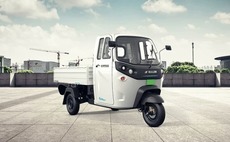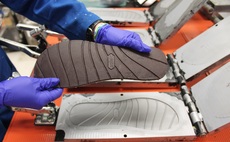
LanzaTech forms Asian alliance
LanzaTech is a classic example of how a disruptive technology can attract investors from different geographies. Originally from New Zealand, the company has developed a technology for converting carbon dioxide into fuel and chemical products. This kind of anti-pollution play is much sought-after in heavily industrialized economies such as China.
"There is a strong global alignment around the problems LanzaTech is trying to solve: how to get rid of toxic gases that are released into the air, and how to create renewable fuels and chemicals. These are both major issues that are being hotly debated in countries where we've found partners," says Andrew Chung, managing partner at Khosla Ventures.
The US-based VC firm was an early investor in LanzaTech in 2007 and owns nearly half of the company.
Last week, LanzaTech secured $60 million in Series D funding led by Japan's Mitsui & Co, with participation from China International Capital Corp. and Siemens Venture Capital. Return backers Khosla, Qiming Venture Partners, New Zealand's K1W1 and the Malaysia Life Sciences Capital Fund also participated.
The latest round brings the total raised by the company to $137.3 million. Softbank China Venture Capital and Malaysian Petronas Technology Ventures are among the investors to have taken part in previous rounds.
Another reason LanzaTech draws Asian investors' interest is that it meets a wide range of needs, both upstream and downstream. China and Japan can utilize the technology in steel mills, coal-fired plants, and solid waste plants to reduce carbon emissions. In Malaysia and Indonesia, meanwhile, the company can complement palm oil biofuel manufacturing with a range of renewable products that can be made from non-food feedstock.
Founded in 2005, LanzaTech won support from the China Academy of Sciences to commercialize its technology in China. It has since formed joint ventures with Baoshan Iron & Steel and Beijing Shougang Steel. Both are building commercial scale plants to produce renewable energy following successful pilot projects.
"We are also in negotiation to build commercial plants for other steel mills, including one in North Asia. Every company wants to make sure the technology is implemented successfully and efficiently before scaling up," says Ken Lai, vice president of Asia at LanzaTech.
The company expects to generate increased revenue in 2015 from licensing technology and upstream production in the joint ventures. Currently all JVs follow the same rule: LanzaTech commits intellectual property non-exclusively, while partners fully fund the commercial plants.
"Many cleantech companies in the US have found it challenging to fund plant scale up - having to raise hundreds of millions of dollars in equity to build manufacturing facilities. Lanzatech is an exception to this rule and an example of cleantech done right," Chung says.
Latest News
Asian GPs slow implementation of ESG policies - survey
Asia-based private equity firms are assigning more dedicated resources to environment, social, and governance (ESG) programmes, but policy changes have slowed in the past 12 months, in part due to concerns raised internally and by LPs, according to a...
Singapore fintech start-up LXA gets $10m seed round
New Enterprise Associates (NEA) has led a USD 10m seed round for Singapore’s LXA, a financial technology start-up launched by a former Asia senior executive at The Blackstone Group.
India's InCred announces $60m round, claims unicorn status
Indian non-bank lender InCred Financial Services said it has received INR 5bn (USD 60m) at a valuation of at least USD 1bn from unnamed investors including “a global private equity fund.”
Insight leads $50m round for Australia's Roller
Insight Partners has led a USD 50m round for Australia’s Roller, a venue management software provider specializing in family fun parks.








